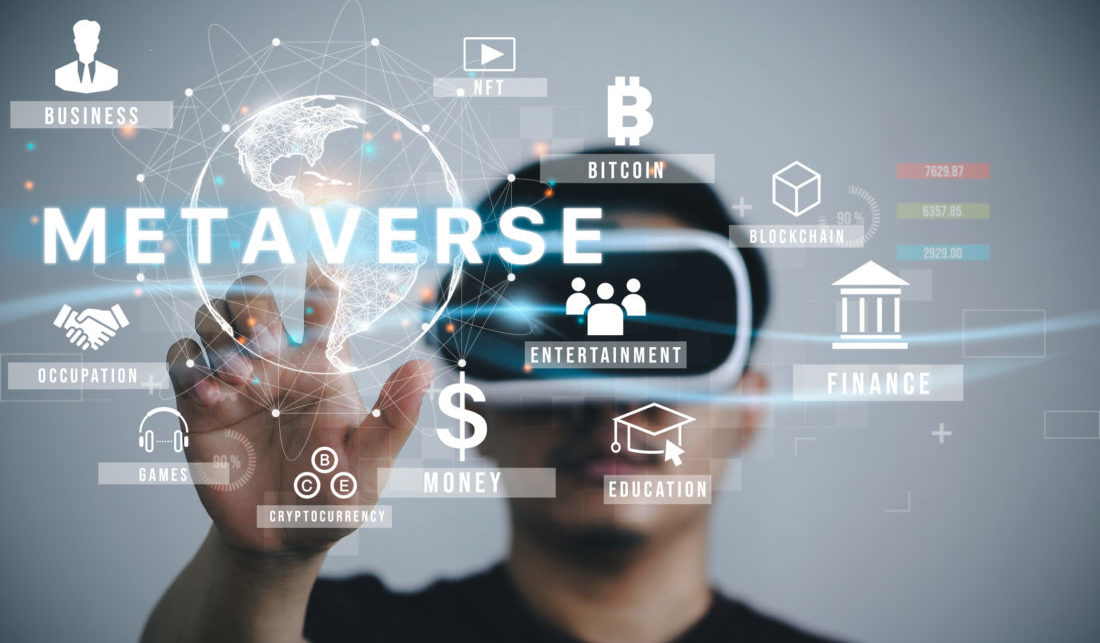The metaverse is not only a 3D virtual world that brings people from across the globe together but also a future state of technology with multiple applications.
Because physical disabilities are not reflected in the metaverse, other people don’t know if you are using accessibility aids or different devices to move your virtual avatar in a meeting, game or other event held in the virtual world.
That creates the opportunity for technology to bridge the gap where limitations once existed and for companies to leverage accessibility in the metaverse to optimize bringing people together.
During the session “Accessibility in the Metaverse” at the SoCal Women’s Leadership Summit 2022 on Nov. 4 in Los Angeles, iAsia Brown, data and AI specialist at Microsoft and Women in Technology: Hollywood (WiTH) Foundation board member, said.
The Summit was co-located with the Infinity Festival Hollywood event, and held as both a live, in-person event and online via the MESAverse virtual platform.
Brown started her presentation by showing video of a virtual tour of Christopher Street in downtown Manhattan that includes Christopher Park and the Stonewall Inn, which she noted has “been at the center of the LGBTQIA+ rights movement since the historic uprising” that happened there in 1969.
 “The magic of the metaverse lets us add touchstones to the past,” including video screens and rings that provide historical audio clips when activated, she noted.
“The magic of the metaverse lets us add touchstones to the past,” including video screens and rings that provide historical audio clips when activated, she noted.
When thinking about “the metaverse and accessibility in the metaverse … everyone thinks that you have to have a headset and you have to be” immersed in the experience, she said.
“The metaverse is persistent,” she went on to say, noting: “The metaverse never turns off, ever. It’s always on. It’s always there. It’s readily available. It’s like that 24 hour adult-like nightlife shop that’s always open in the middle of Times Square.”
She selected that park “specifically because that was a pride event that Microsoft put on,” she noted. “Being the worldwide pride director, I had this vision [to] tell a story … of the past, present and the future prides. But I want it to be accessible” to all potential viewers, regardless of where they live, she said.
“I learned something while I was creating this space,” she recalled. “I’m neurodivergent. I had a traumatic brain injury that I got while serving” in the U.S. military. In the middle of creating the project, “I actually knocked myself unconscious because part of the world was spinning and it was glowing, and I had my headset on and nobody was in the house with me. And my dog does not like me. It’s my wife’s dog. So I was just there. There I am; laid out with my headset on and the dog did not care until the doorbell rang. So while I was sitting there, I’m like, ‘Man, this is not accessible. How do you create something and you fail yourself?’”
As a result, she said she “had to go back to the drawing board” and cut back on the motion that had made her dizzy to make it more universally accessible. After all, she noted: “The one thing a lot of people who wear VR headsets say [is] that they get motion sickness.”
She thought about what made her different from others and noted “I can’t handle flashes of bright light; I don’t like spinning.” From there, she realized she wanted to make the project accessible for people she knew that had no thumbs and for the elderly who are not as mobile as others, she recalled.
“I can’t fix it for everybody because I ain’t that good. I’m just not. I’m not that good. But every day, I try to get a little bit further than I was yesterday,” she said.
Mobility is a major issue because not everyone can move, she pointed out. “And one of the, I guess, prerequisites of the metaverse is you have to be able to get in it. And it doesn’t matter the scope of your mobility because you can be in a wheelchair and still enter the metaverse.”
But there are some people who are “completely paralyzed from the next down … quadriplegic [who] don’t have the ability to headset yourself, to dress yourself,” she noted, adding maybe they live alone and don’t have a helper.
Pointing out how important playing videogames were to her while she was in the military and why she wants to make virtual reality and the metaverse more accessible, she explained: “I could be anywhere in the world and still be connected. And, for me, that was important. That was lifesaving. And when I say that like it saved my life, it really did save my life because I always had a community that I could go to and just be me.”
She then noted there are other media sectors that aren’t accessible to everybody. “Only 7 percent of the books that are written are made for the visually impaired. They have a version that’s made for the visually impaired, and 2 percent of all books are actually made in braille. So I don’t think it’s okay that just because you can’t see, you can’t read. I don’t think they correlate. So how do we get better?
She challenged an author she knew who’s releasing a book soon to release an “audio version in the metaverse so people can just listen” to the book.
The SoCal Women’s Leadership Summit was presented by Ateliere with sponsorship by Amazon Studios, Softtek, Fortinet, Prime Video, SHI, Amazon Web Services, PacketFabric and Presidio.
To learn more about MESA’s events, contact [email protected].

